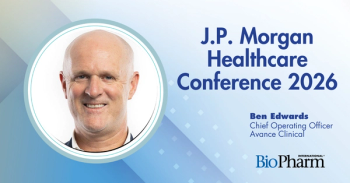
- BioPharm International-02-01-2011
- Volume 24
- Issue 2
Driving your Product to Profitability with Project Management at the Wheel
Biotech companies will have a much better shot at success with a project management plan and team in place from the very outset
Recently, a friend of mine shared with me a story about his daughter and how she and her three college friends managed to turn what should have been a wonderful spring break vacation into a miserable two-week trip that all of them would rather forget. It seems they had decided to take a "leisurely drive" from their college in Washington State to visit another friend in California, stopping along the way to visit mutual friends and enjoy the scenery. Their excitement and enthusiasm was short-lived, however, and the trip resulted in them getting lost numerous times, mechanical failures and breakdowns, sleeping in the car most nights, bad food, missed meetings with friends, and strained relationships among the passengers. In fact, two of the girls do not speak to each other to this day.
Peter Soelkner
What went wrong? Lack of planning, limited funds, poor communication, and unrealistic expectations are only some of the mistakes that were made before they even turned the key in the ignition. We think they are foolish and immature young people, and rightfully so. But how often do we hear of small biotech companies committing many of the same mistakes in their early-phase drug development business with stakes much higher than a failed road trip?
Planning for success in early-phase drug development is in many ways similar to the planning of a successful road trip. Positive outcomes depend on preplanning and critical decision-making as quickly and as accurately as possible. The high costs associated with the lack of planning can include the loss of valuable time and money, outright failure of the project, potentially serious damage to the reputation of the company, and in the worst-case scenario, business failure.
In today's high-cost, highly competitive drug development environment, no biotech firm can afford to enter Phase 3 and commercial production without solid data gathered from early-phase development. Given today's complex regulatory environment and the limited financial resources at so many biotech companies, the pressure to develop new and profitable molecules is tremendous. Although many compounds are screened for their therapeutic potential, few prove suitable to move forward for clinical evaluation, while even fewer ever reach Phase 3 and commercialization.
Having in place a well-integrated project management strategy developed in concert with a contract manufacturing organization (CMO) is the key to allocating resources, creating a top-notch project management team, satisfying regulatory authorities, and advancing the compound to Phase 3, and then getting the drug to commercial production and finally to the patients who need it. For injectable products, often considered the most technically challenging and expensive drugs to develop, the project management process is especially vital to success. Today, the small biotech company that understands the value of an integrated project management strategy has taken the first big step in reducing a drug's time-to-market, optimizing costs, and increasing their return on investment.
Is your company ready for its road trip? Here's what you need to know.
DEVELOP A ROAD MAP
Like any well-planned trip, no compound should enter into early-stage development without a good road map. Plan your trip before you get behind the wheel.
What does the road map for an integrated project management strategy look like? Generally, it includes four phases:
- initiation: objectives, project scope, and deliverables are defined, and the project team is put together
- planning and coordination: a plan is designed that outlines tasks and individual responsibilities; potential risks and means to address them
- controlling: the project itself is executed, and any potential problems are quickly addressed and eliminated
- closing: at the end of the project, lessons learned are documented, reported, and applied to current and future projects.
In the present biotech business, each phase of the project is becoming more and more challenging, and risks, particularly financial risks, are increasing exponentially. Engaging a highly experienced CMO to help develop a project management strategy for drug development can be very helpful.
TRAVEL WITH PEOPLE YOU KNOW AND TRUST
The key to getting this process in motion—and keeping it moving—is the project manager. The ideal project manager will have a background in natural sciences and significant experience in assembling and directing teams that include researchers, technical, and economic experts. The project manager will pull together a team of highly skilled individuals who are ready to solve existing and potential problems from the laboratory to the production line.
A diversity of specific skills among team members is vital and should include individuals with experience in:
- packaging development
- process development
- qualification and validation
- production
- regulatory affairs (including a range of US, European, and other national and regional bodies)
- quality management
- supply chain management.
Because small biotech companies often lack the staffing and the expertise to assemble their own project management teams, the CMO and its designated project manager are critical and will create a team that suits each project's specific needs, keeping in mind that small-biotech staff members may not be familiar with all the details involved in bringing a drug to the clinic. This may be particularly true in the case of regulatory issues where a CMO can provide extensive regulatory expertise and bring even greater value to the project.
HITTING THE ROAD
Putting in the time and effort to develop a thoroughly integrated plan during the early phases of drug development will reap many benefits by identifying and eliminating existing and future problems before the plan is initiated. This time is well spent, and will not only help avoid crises during the later phases, but will help shorten time-to-market and maximize return on investment.
SUCCESSFUL TRAVEL THROUGH COMMUNICATION
The road to a sound partnership and project success is paved with clear and regular communications. The project manager is responsible for ensuring that every step of the work plan and its execution is thoroughly documented and accessible to team members. The importance of good communication among team members cannot be overstated. Executed consistently, clear channels of communication will help prevent misinformation from developing and spreading, reduce or eliminate risks, and promote collaborative team relationships. Regular and pre-prepared conference calls and team meetings that are well-documented help ensure project transparency and the free flow of accurate information. Creating a simple communications plan that includes a list of phone numbers and contact info of whom to call in case of emergency, project issues, etc., is well worth the little effort needed to construct it, and is a valuable tool not just for communications as a whole, but to help speed up decision-making in the event of a crisis or other problem.
MOVING DOWN THE ROAD
The real effort in moving a drug forward in the early stages of the project is in the development and validation phases. In this stage, the plan's tasks and responsibilities yield the actual product. Throughout these phases the project manager is responsible for checking on the progress of the project, anticipating needs, overseeing costs, identifying and addressing any issues that may crop up, and ensuring the project is progressing as planned. Regular communication in these phases is critical. Milestones should be kept in sight and adjustments made to be sure they're reached. The project manager that can cultivate a trusting and collaborative environment between the CMO and the customer is a major asset to the project. The focus on each others' needs beyond the project at hand will make for a better outcome now and in the future.
CHALLENGING ROAD TRIPS FOR SMALL BIOTECHS
At small and emerging biotech companies, the challenges and risks involved in project management during early-phase development can differ in both type and degree from those at major biotech companies. For example, smaller biotech companies often prefer the selection of a CMO that they can work with through the entire process of a project, from Phase 1 through to commercial production. Thus the selection of a CMO by the small biotech company is crucial to the success of the project. There are many issues to consider and questions to ask before a final selection is made to be certain the CMO and the company are well suited. These include how swiftly can the CMO move a project ahead? How effectively will the supplier handle the company's active pharmaceutical ingredient? Is the CMO financially stable and flexible? Will the CMO understand the company's overall goals beyond the project at hand? Is there a sense that the relationship will be trusting and collaborative? In many cases, the smaller biotechnology companies are less experienced in many of the technical and regulatory issues that must be addressed in bringing a new compound to the development phases and then to market. Because these problems tend to occur more often during early-phase development, these companies may need to frequently update project specifications when unexpected roadblocks appear. For many of the complex new compounds being developed today, there exists a significant risk that a project may be cancelled at any point in the process. For these reasons, the depth of experience, capacity for innovation, and flexibility an experienced CMO can bring to the smaller biotech company will lend vital support to the successful management of early-phase development.
For smaller biotech companies that typically lack the financial resources that larger companies bring to bear, the selection of a CMO can make the difference between the success or failure of not just the project underway but, possibly, the very company itself.
MANAGING THE TRAVEL BUDGET
The troubling financial situation over the last several years has resulted in tightened credit markets and the reduction in the flow of necessary capital. Moreover, the enforcement of increasingly stricter licensing regulations that pose especially high hurdles for small biotechnology firms, especially those lacking the internal expertise to address them, also has created a more difficult environment. Today, small and emerging biotech companies feel particularly pressured to get a drug development project underway and through the early phases as quickly as possible.
Often, because of their size and limited capabilities, the smaller company may only learn about the many problems surrounding the early drug development process as they move forward. They also may be unaware of potential problems between the laboratory and the market and their own limitations in addressing them. Small biotech companies with little experience in bringing a product to market are less likely to have acquired the knowledge of how the development process works. In such cases, working with a CMO that is willing and capable of adapting its support services to changing circumstances is essential.
A high-quality CMO can contribute critical consulting and production support to help manage the difficult procedures and decision-making inherent in early-phase development. Together with a well-integrated project management team, a small company can maintain its milestone schedule and keep a project on budget.
DECISIONS MADE ON THE ROAD
Another consideration is how important the size of a drug company is in determining decision-making processes. At smaller biotech companies, the CEO may not have a scientific background. However, this function is central to the decision-making process. Typically, large firms assign the decision-making process to contract management, purchasing, or outsourcing departments. The small biotech CEO's central role and the personal nature of decision-making underline just how important it is for a CMO and its customer to cultivate personal relationships and develop close partnerships among key staff members. Cultivating comprehensive relationships that last beyond the fulfillment of the initial project is critical. A CMO that helps the customer's business as a whole becomes more successful and will lead to huge payoffs in developing a productive partnership and an ongoing business relationship.
THE SUCCESSFUL TRIP REALIZED
Biotech project management is a complex issue, and many of the greatest challenges and risks come during the early phases of drug development. However, moving from the early phases into Phase 3 and commercial production, companies will have a much better shot at success with a well-integrated project management plan and team in place from the very outset. The key features of the plan include:
- a deep appreciation of the small biotech's unique challenges, strengths and limitations, and decision-making processes
- a clear focus on sound project planning and management
- a consistent, hands-on approach in every phase of the project
- development of specific project tools for the planning and controlling phases
- thorough, accessible documentation at all points
- anticipation and quick response to emerging crises, problems and changing circumstances.
To summarize, CMOs that thoroughly understand and apply a carefully integrated project management plan can make a significant difference in helping small biotech firms carry their compounds from early-phase development to Phase 3 and commercial production. They can help you reach your destination safely and make the trip a successful one.
Peter Soelkner is managing director at Vetter Pharma International GmbH, Ravensburg, Germany, +49 (0)75137000,
Articles in this issue
about 15 years ago
BioPharm International, February 2011 Issue (PDF)about 15 years ago
The Quality Product Steward Model: The Genentech Approachabout 15 years ago
An Economic Comparison of Three Cell Culture Techniquesabout 15 years ago
The Powerful Lesson of the GSK–Whistleblower Caseabout 15 years ago
Trends Toward Standardizationabout 15 years ago
Congress to Scrutinize FDA Rules, Research Policiesabout 15 years ago
What a Piece of Work is PharmaNewsletter
Stay at the forefront of biopharmaceutical innovation—subscribe to BioPharm International for expert insights on drug development, manufacturing, compliance, and more.




